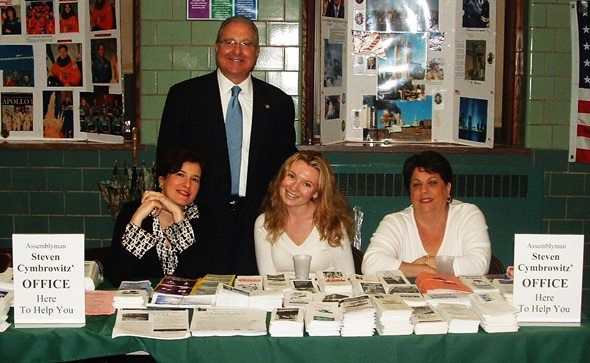Cymbrowitz: We Must Not Let the Arizona Massacre Threaten Our Democracy

Below is an Op-Ed piece from Assemblyman Steven Cymbrowitz of the 45th Assembly District.
The tragic events that occurred in Tucson were much more than an attack on a Member of Congress, her staff and constituents; it could very well turn out to be an attack on our democracy – if we let it. Rep. Gabriella Giffords was targeted as she was practicing democracy, reaching out to her constituents, communicating with them right in the community. This “Corner Congress” was a vivid example of our form of government functioning at its best. The nation was justifiably horrified when they learned about the shootings. In its aftermath, as the investigators and prosecutors were investigating, we the people were looking for causes and wondering what we have to do to make sure that this never happens again. In seeking an explanation for this carnage we have to ask was the gunman provoked by something other than insanity? Could inflammatory speech, which was uttered by so many during the electoral process that ended only a few months ago, be a motivating factor?
Free speech is a valuable fundamental right of all Americans, protected by the Bill of Rights. However, just as yelling fire in a non-burning movie theater is not protected, neither should extreme inflammatory talk. While an argument could be made that such rhetoric leads to lively discussion and debate, it could also result in anti-societal action, such as was seen in Tucson, among those who are unbalanced. Do we want to take this chance? We really have no choice. Government cannot limit such speech. To attempt this would be the end of our democracy and we would be saying goodbye to the freedoms Americans have enjoyed since the American Revolution. Americans can, however, choose to limit their debates to strong, rational arguments that focus on the issues and refrain from demonizing the opposition. It is important for us to do this individually, and for our leaders to practice this as well. The dangers of inflammatory speech are not only that it may incite violence, but it can also motivate a segment of the population to support an issue for emotional rather than well thought out reasons. We saw this happen in our
own community during the last election campaign when mistruths and demagoguery were used to advance the cause of a candidate. The strategy was to strike an emotional nerve in the electorate, regardless of the accuracy of the claims, in the quest of attracting votes. Fortunately, in Brooklyn violence wasn’t a factor, but was the well-being of the community being threatened?
Subsequent to the Tucson attack there was discussion that elected officials, even those on the local level, would have to pull back from being out in the public. If this were to happen it would threaten our democracy. Elected officials need the free exchange of ideas which happens naturally at town hall meetings, mobile community offices and question and answer sessions at the meetings of local organizations. Meeting with the public – the people who elected them – is an important component of an elected official’s job. This is why we must maintain a delicate balance between security and isolation. It has become commonplace to see the President, Governor and Mayor surrounded by tight security because of the risk, but most other elected officials – city, state and federal – have freely mingled with the public.
The human toll of the Tucson massacre is immense, as we pray for the victims and their families we must be cautious not to change our ways at the cost of either chipping away or totally eliminating our democracy. Legislative bodies at every level of government are examining their security protocols. However, as the events in Tucson are analyzed it is important that openness and communications, important foundations of our democracy, are maintained. Remove the personal contact with elected officials from our society and our democracy will be diminished.



